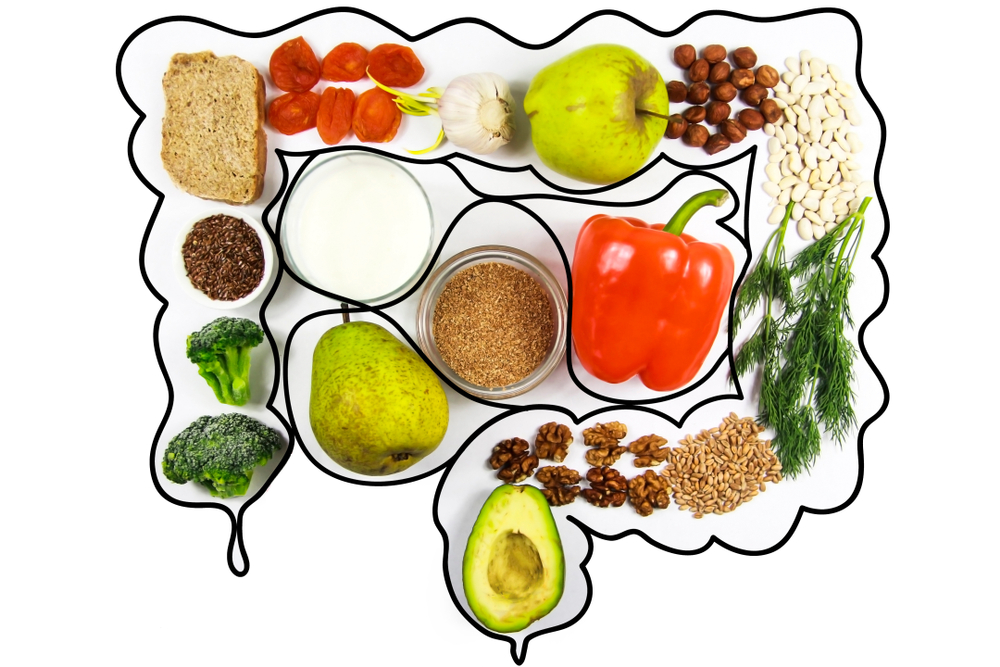Nobody wants to talk about it, but let’s be honest heartburn, bloating and gas are all symptoms of indigestion that plague everyone at one point or another!
It can be uncomfortable and even painful in some circumstances, but with these 5 simple tips from Fruitful Day’s Nutritional therapist, Michelle, you can improve your digestion drastically. Incorporating these easy points every day will allow you to go from grumpy and gassy to happy and healthy 🙂
1. Chew your food
Digestion is a north to south process which means that any compromises made higher up in the chain will have negative effects later on. Chewing your food whilst in a parasympathetic/relaxed state is important, as discussed in last month’s article. However, I wanted to discuss the simple act of chewing. The teeth physically break down food, however, saliva (99.5% water + 0.5% solutes) actually begins to break the food down enzymatically. This is why it’s really important to chew enough before swallowing – ideally for 30 seconds per mouthful.
For example: if salivary amylase doesn’t get a chance to begin the breakdown of starches, the pancreatic enzyme cannot complete the breakdown and undigested starch enters the colon feeding candida. If you’re prone to candida outbreaks, just the simple act of chewing your food can make a difference in keeping it under control.
3. Stomach acid is key
The stomach is designed to be at a pH of 1.5 – 3.0. Hydrochloric acid is excreted at a pH of 0.8 and has many roles:
- It baths and disinfects the stomach
- It kills parasites and bacteria
- It activates pepsin – an enzyme that begins the breakdown of proteins
- It stimulates gastrin – a hormone that stimulates the release of gastric acid
It’s estimated that 90% of people produce too little stomach acid due to factors such as:
- Stress
- Excess carbohydrate consumption
- Nutrient deficiencies
- Allergies
- Excess alcohol consumption
Without adequate stomach acid, we are prone to infections by yeast, bacteria, viruses and parasites. We are also unable to properly digest our food. Instead of nourishing us, it rots in our gut causing damage to the intestinal lining (leaky gut) and overwhelming our body with undigested particles that can, later on, trigger autoimmune disease.
There are several ways to test for stomach acid both with a physician or at home. However, drinking 1tsbp of apple cider vinegar in half a glass of water before a meal will help trigger digestive juices. Eating a small number of bitter foods before a meal such as lemon, grapefruit, kale, turmeric, parsley, coriander, rocket or dandelion greens will also have the same effect. A digestive herbal bitters formula can also be used pre and post a meal to aid with this process.
3. Absorb good fats
Fats play a big role in a healthy diet because they provide us with energy, create the building blocks for cell membranes and hormones, aid in the absorption of fat-soluble vitamins, serve as a protective lining for the organs of the body, increase satiety and most importantly make food taste amazing!
Luckily the ‘low fat fad’ seems to have dissipated and most people embrace the need for healthy fat. However, if you were on a very low-fat diet in the past or consumed a diet with a lot of hydrogenated fat (in fast food), then it could be the case that your gallbladder has been compromised and is not releasing bile in the right quality or quantity. Since bile is used to digest fats, all the processes that use fat (as previously described) will be compromised. This is why quality fats such as avocado, coconut oil, grass-fed butter and flax oil are so important as part of the digestive process.
4. Feed your microbiome
Trillions of bacteria inhabit our gastrointestinal tract and play an intricate role in our health. Many factors such as lack of sleep, stress, pesticides, smoking, alcohol, diet and antibiotic use can affect our microbiome. Researchers are becoming more and more aware of how these bacteria support our health. Anything from skin allergies, thyroid, autoimmune issues, brain fog and cravings could be the result of a damaged microbiome.
Consuming probiotic-rich foods such as sauerkraut, kimchi, kombucha and kefir can help rebuild your gut microbiome.
5. Eliminate food irritants
There are many reasons your body finds certain foods irritable or stressful. For example, gluten intolerance could actually be an immune response to mould on old or improperly stored flour, rather than the flour itself. You can even form ‘intolerances’ to foods you consume at emotionally stressful times, repeatedly through your life. It’s mostly the case that when digestion is compromised in any of the ways we discussed in this article, you will likely also have intolerances as your body doesn’t have the capability to properly digest certain foods.
If this is the case, it’s best to cut that food out entirely, then go about the process of healing your gut and then finally, reintroduce the food once you’ve healed. It’s really hard for any healing work to be done if you’re constantly being irritated by a certain food every day.
